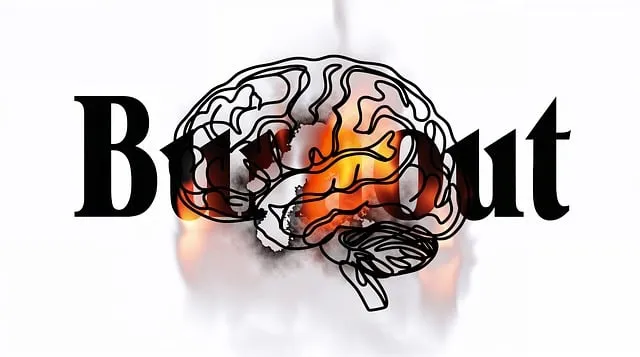The Boulder Kaiser Permanente mental health center excels in culturally sensitive care by embracing diversity and tailoring services to patients' unique backgrounds, beliefs, and communication styles. Through staff training, initiatives like Stress Management Workshops, tailored resources, and a Mental Wellness Podcast Series, the center promotes understanding, reduces stigma, and improves patient outcomes. Their commitment to continuous learning fosters an inclusive environment, ensuring effective, respectful mental healthcare for all in their diverse community.
“Cultural sensitivity is an indispensable aspect of quality care at Boulder Kaiser Permanente’s mental health center. This article explores the intricate balance between cultural diversity, patient-provider relationships, and ethical considerations in a multicultural setting. We delve into effective communication strategies tailored for diverse populations, highlighting the importance of continuous learning and cultural competence training for mental health professionals. By understanding and embracing these practices, Boulder Kaiser Permanente enhances its ability to provide inclusive, compassionate, and effective mental healthcare.”
- Understanding Cultural Diversity in Mental Healthcare at Boulder Kaiser Permanente
- The Impact of Cultural Sensitivity on Patient-Provider Relationships
- Navigating Ethical Considerations in a Multicultural Setting
- Effective Communication Strategies for Diverse Populations
- Continuous Learning and Cultural Competence Training for Mental Health Professionals
Understanding Cultural Diversity in Mental Healthcare at Boulder Kaiser Permanente

At Boulder Kaiser Permanente mental health center, understanding cultural diversity is paramount to delivering effective care. With a patient population reflecting the rich tapestry of the region, from diverse ethnic backgrounds to varied socioeconomic statuses, the center recognizes that mental illness does not discriminate. This awareness drives their approach to mental healthcare, where cultural sensitivity is woven into every aspect of treatment. By incorporating patients’ unique cultural perspectives and traditions into therapy sessions, the center fosters a safe and inclusive environment.
The integration of cultural competency training for staff and ongoing Resilience Building initiatives ensures that every individual receives care tailored to their needs. Moreover, Boulder Kaiser Permanente actively engages in Mental Illness Stigma Reduction Efforts, promoting understanding and empathy within the community. Through these efforts, the mental health center not only improves patient outcomes but also contributes to a more comprehensive Mental Health Policy Analysis and Advocacy, shaping a future where mental healthcare is accessible and culturally responsive for all.
The Impact of Cultural Sensitivity on Patient-Provider Relationships

At the Boulder Kaiser Permanente mental health center, cultural sensitivity plays a pivotal role in shaping patient-provider relationships. Understanding and appreciating the unique cultural backgrounds, values, and beliefs of each patient fosters an environment of trust and openness. This is crucial for effective communication, ensuring that emotional healing processes can begin and thrive. When providers are culturally sensitive, patients feel heard, respected, and understood, which significantly boosts their confidence in seeking mental health support.
Cultural sensitivity also equips healthcare professionals with the skills to navigate complex interpersonal dynamics. By recognizing and respecting cultural differences, they can avoid potential pitfalls such as misunderstandings or insensitive remarks that might disrupt emotional regulation. This approach not only strengthens patient-provider connections but also enhances the overall quality of care provided at the Boulder Kaiser Permanente mental health center, contributing to better outcomes for all patients.
Navigating Ethical Considerations in a Multicultural Setting

Navigating ethical considerations is an essential aspect of providing mental healthcare in a multicultural setting, such as the diverse community served by the Boulder Kaiser Permanente mental health center. With patients from various ethnic backgrounds and cultural traditions, therapists must be vigilant to ensure they offer culturally sensitive care. This involves understanding and respecting different beliefs, values, and practices related to mental health and wellness. For instance, some cultures may view mental illness through a spiritual or traditional lens, requiring therapists to adapt their approaches to include these perspectives.
The Boulder Kaiser Permanente mental health center has taken proactive steps to foster cultural sensitivity by organizing initiatives like Stress Management Workshops Organization, providing resources tailored to diverse communities, and promoting open dialogue through the Mental Wellness Podcast Series Production. These efforts aim to bridge any cultural gaps, improve communication strategies, and ultimately enhance patient outcomes. By embracing these inclusive practices, the center ensures that every individual receives respectful, culturally competent care.
Effective Communication Strategies for Diverse Populations

Effective communication is a cornerstone of successful mental healthcare, especially when serving diverse populations. At the Boulder Kaiser Permanente mental health center, professionals employ tailored strategies to ensure every patient feels heard and understood. This involves learning about different cultural backgrounds, languages, and communication styles to bridge gaps and build trust. For instance, therapists might adapt their language to use simpler terms or incorporate culturally relevant examples to better connect with patients from varied communities.
One key approach is using clear, concise language and active listening techniques. These methods ensure patients feel respected and valued while enabling healthcare providers to gather accurate information about symptoms and concerns. Additionally, incorporating strategies like Social Skills Training and teaching Stress Reduction Methods can further enhance communication and overall patient outcomes, particularly when addressing issues related to Depression Prevention.
Continuous Learning and Cultural Competence Training for Mental Health Professionals

At the Boulder Kaiser Permanente mental health center, recognizing the dynamic nature of cultural landscapes is paramount to delivering effective care. Continuous learning and cultural competence training are integral components of this process, ensuring that mental health professionals stay updated on diverse cultural practices and perspectives. These initiatives foster an environment where practitioners can navigate the intricate web of cultural nuances, thereby enhancing patient outcomes.
Through regular workshops and seminars, healthcare providers gain insights into various cultural contexts, promoting empathy and understanding. Such training equips them with tools to address burnout prevention, cultivate positive thinking, and build resilience—essential elements for both professionals and their clients. By embracing these learning opportunities, the mental health center aims to revolutionize care delivery while respecting and celebrating the rich tapestry of its community.
Cultural sensitivity is an indispensable aspect of high-quality mental healthcare, as demonstrated by Boulder Kaiser Permanente’s commitment to inclusivity. By prioritizing understanding and respect for diverse cultural backgrounds, the center enhances patient-provider relationships, navigates ethical challenges in a multicultural setting, and employs effective communication strategies tailored to diverse populations. Continuous learning and cultural competence training are vital for mental health professionals to stay equipped and address the unique needs of every patient. Adopting these practices at Boulder Kaiser Permanente mental health center ensures that all individuals receive compassionate, culturally sensitive care.






